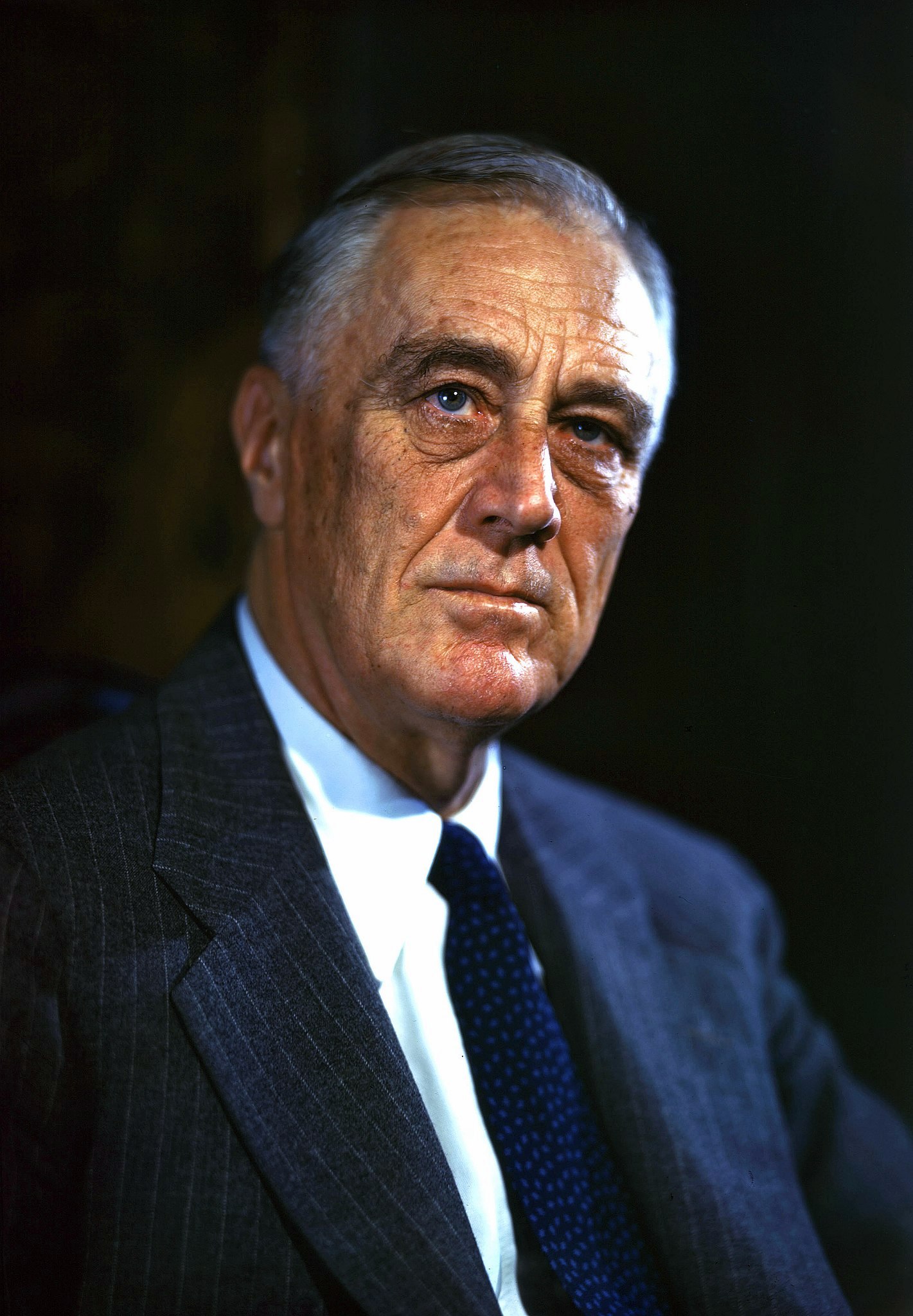
Remarks by President Roosevelt
November 6, 1944, 2:00 p.m. EWT
Delivered at Poughkeepsie, New York

Neighbors of mine, I have been today on another sentimental journey. I have been among my neighbors. I have come down on this side of the river and crossed a big “sea.” And luckily there were no German submarines in that “sea” – I went from Beacon to Newburgh.
And in my travels this day, I think I have seen a very encouraging sign of our American life – I think the population is increasing enormously. I have seen more children than I knew existed in these three counties. They are coming along in good shape, and it encourages me greatly to think that the future of the country will be relatively safe in their hands, under a Constitution which has lasted more than 150 years – and I think as long as we increase as we are doing now – we shall still be living under the same old Constitution 155 years from now.
Down in Newburgh, I went through a shipyard, having a few moments to spare, and then in the upper part of the city there was a crowd that was at least twice or three times the size it was four years ago. And that was encouraging. And I told them there that I did want to say a good word for our legislature because as you know, the duty of apportioning the Congressional districts of this state is the duty of the legislature. And a curious thing happened recently. Our county used to be in the same district with Putnam and Orange counties. And quite a number of people were irked that the legislature changed it a bit. And then I think a Congressman was taken out of the District, insofar as Dutchess County goes. So, after the first of January we will be in a new Congressional district – we won’t be with Orange anymore, and therefore we will have a new Congressman.
Well, my friends, there is more than one way of getting rid of a Congressman.
Then I went up to Kingston, and there again the crowd was at least twice the size it had been before, and I remarked to them – you can see I am pure Hudson River when you come down to it – that my mother’s family came from Newburgh – but up in Kingston – well, there was an old boy in 1660 who went up there from New York City. He was young, and I guess he was rather Dutch – with the old stubborn qualities. About that time the Indians attacked Kingston, and he became a member of the militia that rolled the Indians back.
And I think that it is for that reason, perhaps, that I am interested and have been all my life – though not in uniform – in military and naval affairs. It comes from the old Dutch boy in 1660 who belonged to the militia.
But one sad thing happened. I had to come all the way back down the west side of the river. They had taken off the Kingston ferry! Otherwise, the district and the county had changed very little in the last four years.
We were headed at that time, four years ago, into a war. We didn’t talk about it very much. It doesn’t do to scare people or alarm people. But we did a good deal of building and preparation, and by 1941 we had over two million men in the Army and Navy. We built up our munitions factories. We sent a great deal of aid to the people who were fighting Nazism and Fascism. And the result was that we were better prepared for this war than we had been in all our history for any war. We haven’t been bombed in this country – rap on wood – and we haven’t lost anything within our own boundaries during this war.
And now we are carrying on the offensive against the enemy, in order to make it quite certain that our own homes back here shall be safe.
I don’t know – I think we have done a fair job of it, but anyway we have done it in the American way, with the approval of the American people, and that is something – to go on with our same ideals, our same form of government – as we have always done.
And I hope tomorrow that it is going to be said in this country that the war has been conducted constitutionally, and with the approval of the people of the United States. I hope that will be said. I think it will.
And so, it has been good – it has been a good day. I have seen my near neighbors. I have seen the neighbors across the river and down the county – the southern end. I have seen an awful lot of people. It has been a good day, and I want to thank you for coming out tonight at this late hour, because it has given me a chance to see some of my nearer neighbors.
It is good to see you, and I am going to come back pretty often.